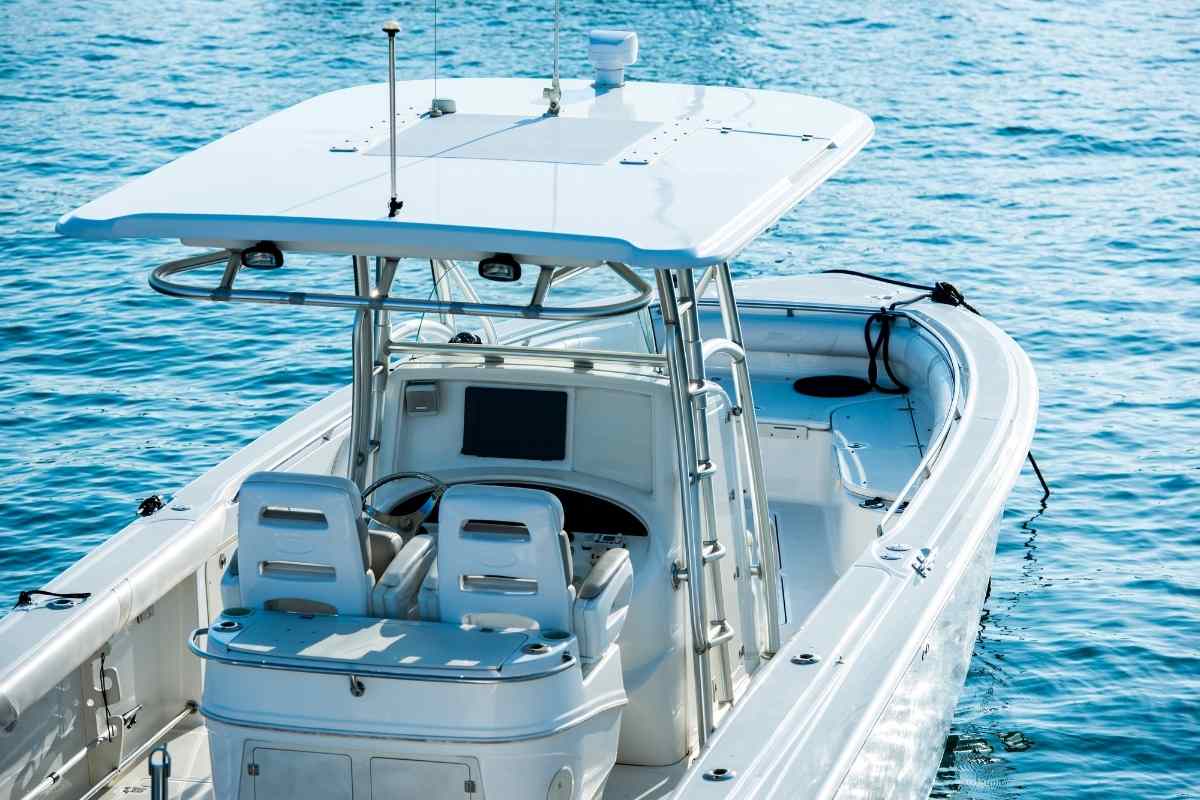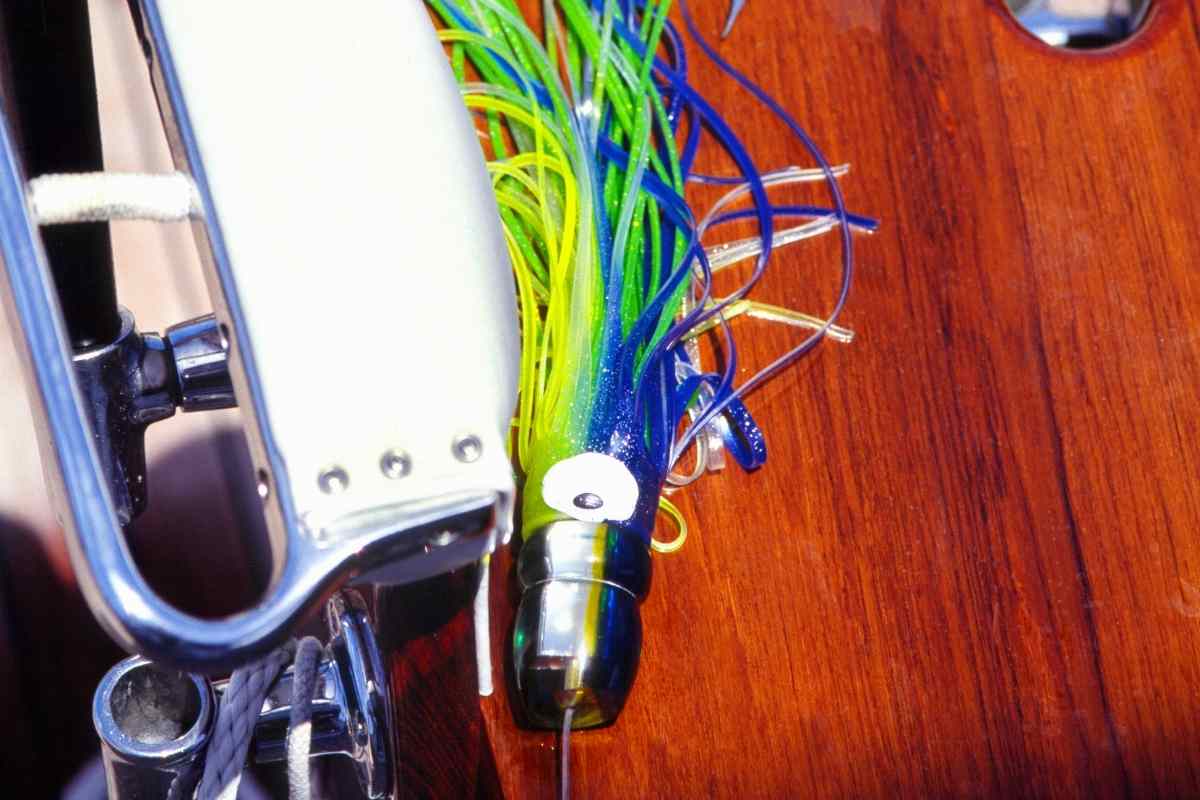How Big of a Boat do I Need to Fish Offshore?
Offshore fishing can be a lot of fun, opening up opportunities for big game fish and a truly thrilling experience catching them that you just can’t get inshore fishing. If you’re planning your offshore fishing trip, you’ll need more than just fishing rods. one of your first questions will be about the size of the boat and the type of boat you’ll need.
Table of Contents
- How Big of a Boat do I Need to Fish Offshore?
- Offshore Fishing Boat Size
- Things To Consider In Choosing Your Offshore Fishing Boat Size
- When To Hit The Open Ocean
- Safety Tips For Open Water Fishing
- What To Look For In A Boat For Offshore Fishing
- Enjoy Your Offshore Fishing
How Big of a Boat do I Need to Fish Offshore?
How big of a boat do I need to fish offshore? You can fish offshore in a boat as small as 10 feet, although it’s best to have a boat at least 15 feet long for safety and efficiency when fishing offshore. Boats up to 30 or 40 feet may be appropriate for some kinds of offshore fishing.
Offshore Fishing Boat Size
The size of the boat you need for cruising offshore for fishing is dictated by the conditions and your risk tolerance. You could fish offshore in a boat as small as 10 ft, although even the more adventurous offshore fisherman prefer a boat of at least 15 ft.
The smaller the boat, the greater the risk with offshore fishing. However, offshore conditions can become treacherous even for considerably larger boats. To be very confident on the open water, you’ll want a seaworthy boat at least 30 or 40 feet long.
Things To Consider In Choosing Your Offshore Fishing Boat Size
A number of different motorboats of varying sizes can be effective for offshore fishing at greater depths than smaller boats like bass boats. The right one for you depends on your personal preferences, the money that you have to spend, local conditions, and just what you want to catch:
Where Are You Fishing?
“Offshore” means different things in different places. In some places, deep water channels cut very near to the shoreline, so you may be able to get into deep enough water for offshore fishing without going more than a mile offshore.
In these cases, you’ll likely see a storm begin to brew and have plenty of time to get to shore before you have to worry. In this case, you may be able to get away with a boat of only around ten feet.
In other places, you may need to travel miles to get far enough from the shoreline to be in deep water. In these areas, a much larger boat will be necessary.
Your Preferences
If you like to go out for an hour or two and come back, you’ll need a different boat than if you enjoy day long or even several day-long fishing trips.
Your motorboat needs to carry enough fuel in your tanks to not only get you out and back in, but also for the type of fishing you want to do. If you like to troll lures at a good clip, you’ll go through a lot more fuel than if you like to drift and drop bait.
If you want to be out for a long time going at a good pace, you’ll need a boat big enough to hold all the fuel you need. If you expect to be out for days at a time, you’ll need a boat that also has a cabin so that you have somewhere to rest. More or less, the more time you expect to spend out in a sitting, the larger boat you’ll need.
Money
Needless to say, larger boats tend to cost more than smaller boats. You can get a 17 ft boat like the Boston Whaler that is more or less unsinkable and superb for ocean fishing despite its small size at a much lower cost than you would typically spend for a 30 or 40 foot boat that may have similar ocean-worthy qualities.
What You Want To Catch
It may be possible to pull in a 12-foot blue marlin in a 15-foot boat, but this doesn’t sound like a very good idea to most fishermen, especially while they’re out on open water far from shore.
If you want to fish for big game fish like Marlin or Sailfish, you will need a larger boat than if you are pursuing smaller quarry.
When To Hit The Open Ocean
The Coast Guard has relatively little authority to tell anglers where and when they can take their boats and, so it’s up to you to make the right decisions for your safety.
In far too many cases, anglers in small boats perish before the Coast Guard can reach them. This despite being in boats that could have handled the conditions with the right knowledge and tools.

Knowing when it is safe to go out depends on understanding your skillset and your boat. If you are still getting to know your boat, it’s a very good idea to take it out on sheltered waters in all sorts of conditions so that you can get a feel for how it handles in wind and waves without taking the risk of being offshore.
Regardless of how experienced you are, if thunderstorms are predicted, it’s best not to go out. Take shelter and leave the deep sea fishing for a calmer day. It can be very difficult to predict how thunderstorms will factor in a given patch of ocean, and you may be overwhelmed with waves and wind you can’t handle before you know it. Just stick to shallow water if you must go fishing during bad weather.
Safety Tips For Open Water Fishing
Rely On The Buddy System
Fishers tend to be an independent lot, but going out with another boat provides a significant safety net for both of you. You don’t even need to fish within sight of each other.
Just knowing that you’re both out on the open water within a few miles of each other is enough to provide both of you a lot of protection in case of equipment failure or another problem.
Make Sure Someone Is Keeping Tabs On You
Make sure that somebody knows where you are fishing and when you’re supposed to come back and knows what to do if you don’t arrive when you should.
This is an important responsibility, so make sure you let this person know that your life is in their hands so that they don’t forget that they’re supposed to be watching for you.
Have All Of The Necessary Safety Gear
It can be tempting to skip on some safety equipment, especially if you’re on a budget, but if you want a safe journey, you need to have every essential aspect of safety gear on hand.
Safety Equipment For Open Ocean Fishing
- A flare gun and flares. If the worst should happen and you are stranded or your boat begins to sink, a flare gun can alert any boats in the area and make it much easier for the Coast Guard to find you.
- A VHF radio. Don’t trust your cell phone with the important job of keeping you safe out on the open water. Cell phone signals can go in or out on deck, and the help you need to call is likely to be the boat closest to you, not somebody you have in your cell phone.
- At least two engines. You probably only need to run one outboard motor at a time to accomplish your fishing goals without losing stability, so it can be hard to take on the burden of an extra motor no, but at least two motors are essential in case one of them has an issue.
- GPS or at least a compass. Most new boats have both a compass and GPS in their center console or cockpit, but you’ll want at least the compass at a bare minimum. Every boat that has a GPS should also have a compass. The last thing that you need is to get disoriented offshore and have trouble finding your way back.
- Life jackets. It doesn’t matter how well you can swim, a life jacket is an essential safety tool if you find yourself adrift on the ocean.
What To Look For In A Boat For Offshore Fishing
A motorboat that is superb for calm water fishing may not function as well out in the ocean. Ocean water fishing requires a boat with some specific parameters:
- Self-bailing. Even in relatively calm conditions, the ocean chop has a tendency to end up in your boat. Unless you want to be frantically bailing out your boat offshore, you need a boat that can drain as fast as the water comes in.
- Flotation. Flotation is required by the National Marine Manufacturers Association for any boat under 30 feet. Hulls can either be filled with air or foam. You want to choose a boat filled with foam, especially if you’re choosing a smaller boat since these hold up better and are almost unsinkable despite the conditions.
- A full transom. A boat with a low or partial transom is great for getting in and out of the boat, but it also allows water to enter more easily and makes it more difficult for it to exit, so you want a boat with a full transom.
Enjoy Your Offshore Fishing
You may not need as much boat as you thought to have a great time with offshore fishing. Depending on where you’re located and what you want to do, you can have a lot of fun even in a fairly small offshore fishing boat.

